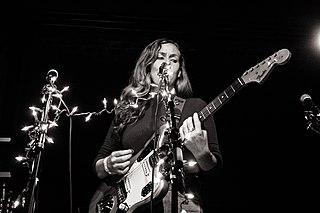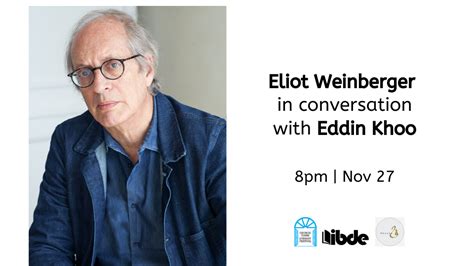A Quote by W. S. Di Piero
You can't be a poet certainly of my generation and not have deep in your animal brain the comment of William Carlos Williams, no ideas except in things.
Related Quotes
One of the appeals of William Carlos Williams to me is that he was many different kinds of poet. He tried out many different forms in his own way of, more or less, formlessness. He was also a poet who could be - he was a love poet, he was a poet of the natural order and he was also a political poet.
I visited Paterson many years ago - 20 some years ago as a kind of day trip because of William Carlos Williams, because of Allen Ginsberg having lived there. And I went to the Great Falls and sat really in the exact same spot as Adam Driver does as Paterson. And I walked around the factory buildings, and I was rereading - I was reading at the time the epic length poem "Paterson" by Williams.
There's always been what I would call the William Carlos Williams strain, in which poems of simplicity and clarity are valued by a different community. I was talking to Galway Kinnell one day, and he said that there was an audience for poetry up until about 1920 and then, from that point on, the poets and the critics drifted.
The major poets of New Jersey have all suffered, whether it's Whitman, who lost his job for 'Leaves of Grass,' or William Carlos Williams, who was called a communist, or Ginsberg, whose 'Howl' was prosecuted, or myself. If you practise poetry the way I think it needs to be done, you're going to put yourself in jeopardy.
You see, writing down your meanderings gets something started deep in the recesses of your brain. That distant part of your mind knows that you want to write stories or poems or plays and not endless jabber, and it will get to work. It may take a while. You may have to write this stuff for hours or days or weeks, but eventually that subterranean part of your brain will come through and begin to send you ideas.
Plants don't think. Animals are guided by the power of instinct over which they themselves have no control. Animals have a certain kind of brain that makes it impossible to learn anything except very simple things. No generation of animals ever learns anything from any previous generation. We act like animals when we fail to use this magnificent piece of equipment.
The poet or the revolutionary is there to articulate the necessity, but until the people themselves apprehend it, nothing can happen ... Perhaps it can't be done without the poet, but it certainly can't be done without the people. The poet and the people get on generally very badly, and yet they need each other. The poet knows it sooner than the people do. The people usually know it after the poet is dead; but that's all right. The point is to get your work done, and your work is to change the world.






































